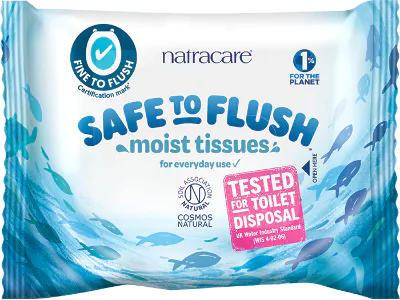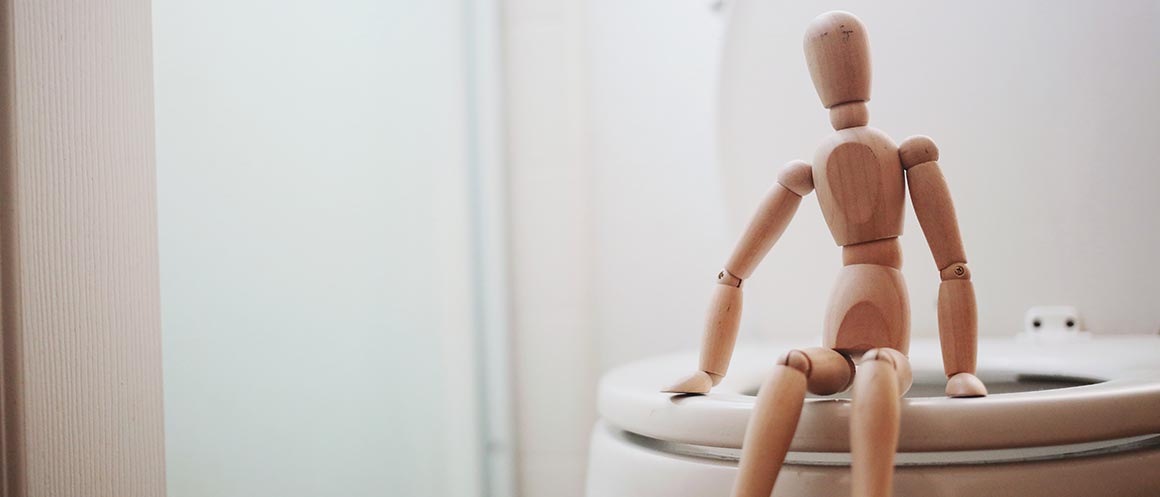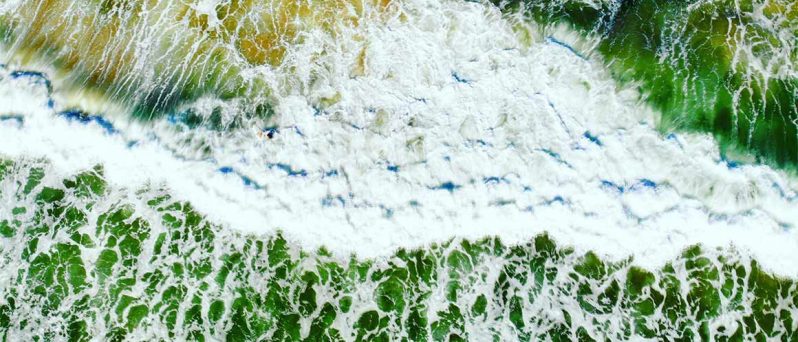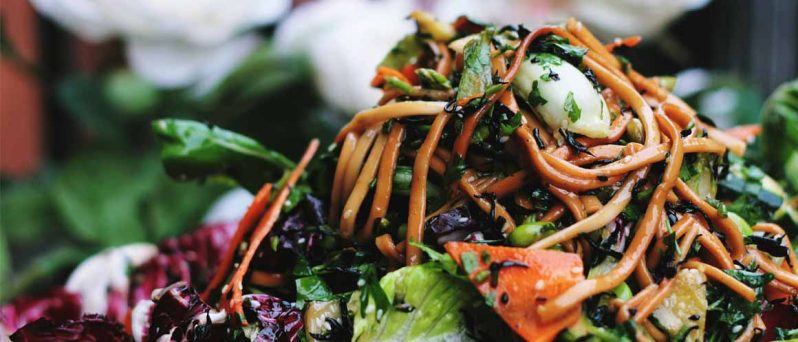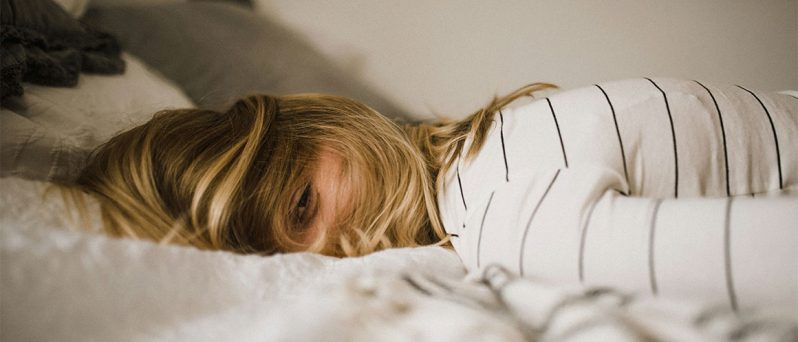Covid-19 created a global uptick of fatbergs, from the UK to Florida to Australia. The arrival of covid and lockdowns led quickly to a toilet paper shortage as people panic bought essentials. This lead to changes in what people used to wipe – and flush. Unsuitable replacements for toilet paper got flushed down the toilet – leading to what was dubbed the “Coronavirus Fatbergs”.
What is a fatberg?
Fatbergs are large masses of solid waste which build up in our sewage systems. They damage our water treatment centres, leak micro-plastics into our water supply, and the cost is added to our water bills. According to a Water UK study, 93% of fatbergs are made up of flushed wet wipes, many of which contain plastic and are not biodegradable. Some wipes are even labelled biodegradable, but are made with reinforced viscose. Sewage systems don’t offer the right conditions for these wipes to break down.
What is the Coronavirus Fatberg?
Coronavirus Fatbergs occurred in major cities around the world as a result of the toilet paper shortage and panic buying, and the increased use of toilet paper alternatives – especially “flushable” wipes, and unflushable thicker tissues like kitchen roll. It’s also highly likely that in a bid to disinfect and clean surfaces around the home, a much larger amount of cleaning and disinfectant wipes were flushed as well. Regardless how or why wipes are used, they must be dispose of correctly, i.e. not flushed, in order to prevent fatbergs clogging pipes and impacting water treatment centres.
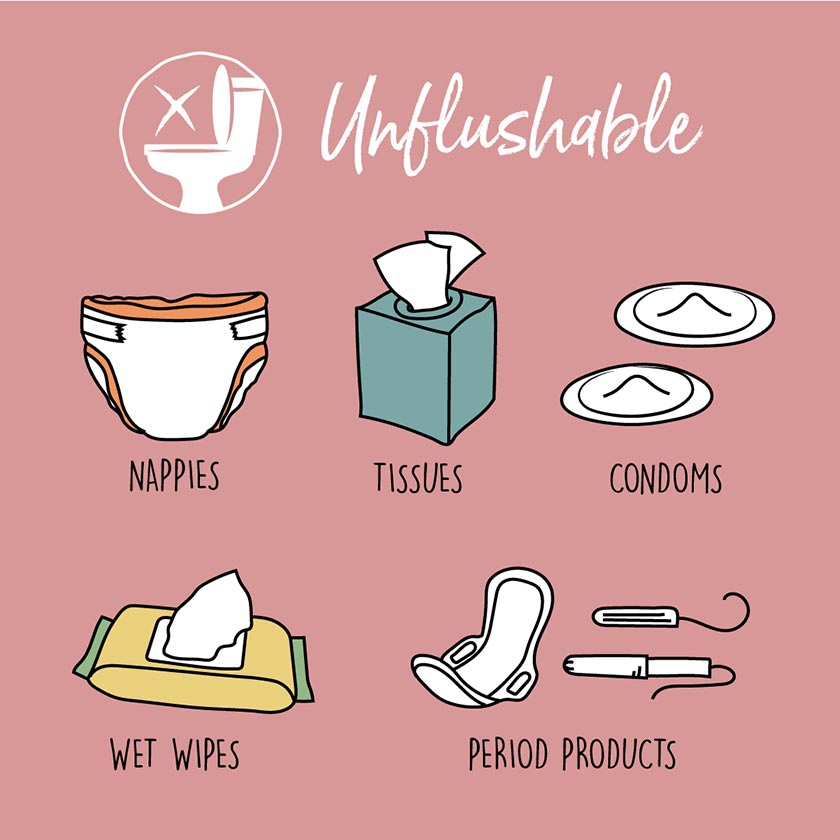
It’s easy to think of a toilet as a wet bin. When we flush something, it disappears – it’s out of sight, out of mind. But this causes issues further down the line that we end up paying. Every time a fatberg needs clearing it costs time and a lot of money for water utility companies, these costs inevitably pass onto consumers. The mantra to follow is the 3 P’s of Flushing: Pee, Poo, and Paper. That means no tampons, condoms, or wipes made with plastic or viscose. When we flush responsibly, it helps ensure that everything is fine to flush.
The flushable specification developed by Water UK uses the 3 P’s as its foundation. It set a new standard to challenge companies who are greenwashing customers with flushable claims and weak standards for testing for toilet disposal. It also pushes brands to change their formulas to do better for our planet – because it is not only possible, but necessary.
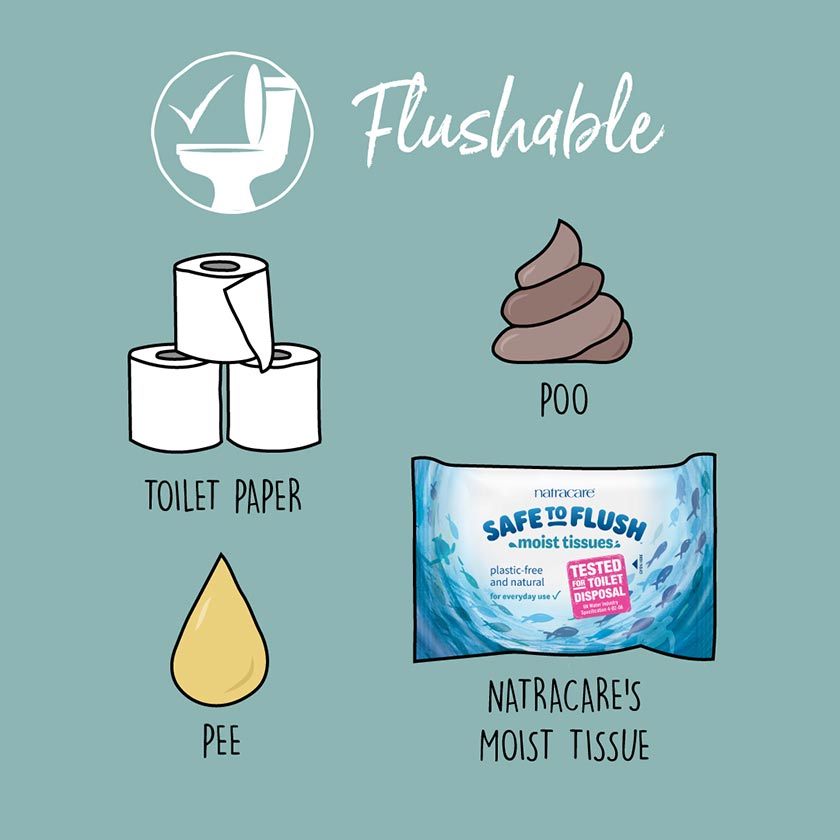
Natracare developed the world’s first fine to flush certified moist tissue. Natracare’s Safe to Flush Moist Tissue is a paper-based, plastic free alternative to “flushable” wipes. Made from 100% paper and tested for safe toilet disposal to WIS-4-02-06. The tissues enable the clean, fresh feeling that wipes provide without causing fatbergs in your neighbourhood. A win-win! 🚽
Here's to clean bums!
And fatberg-free sewers thanks to Safe to Flush Moist Tissues, certified flushable
